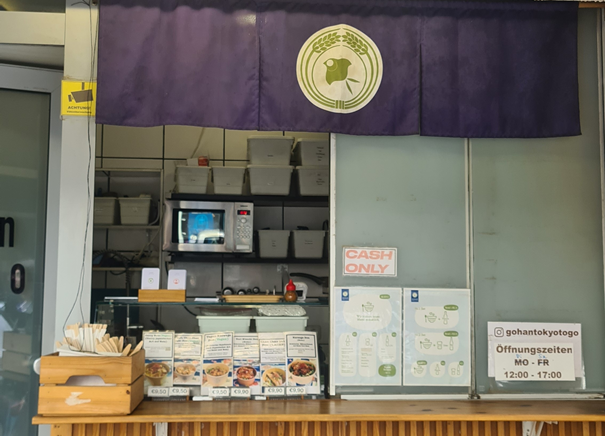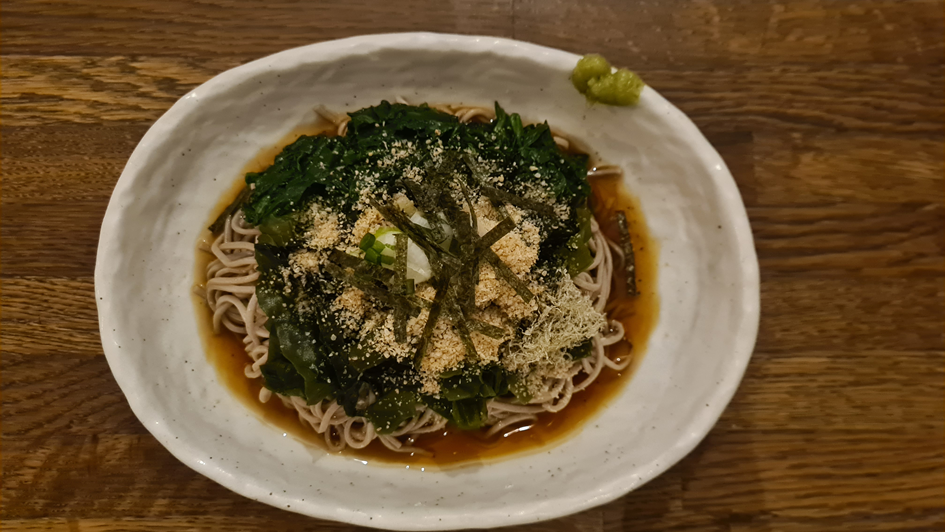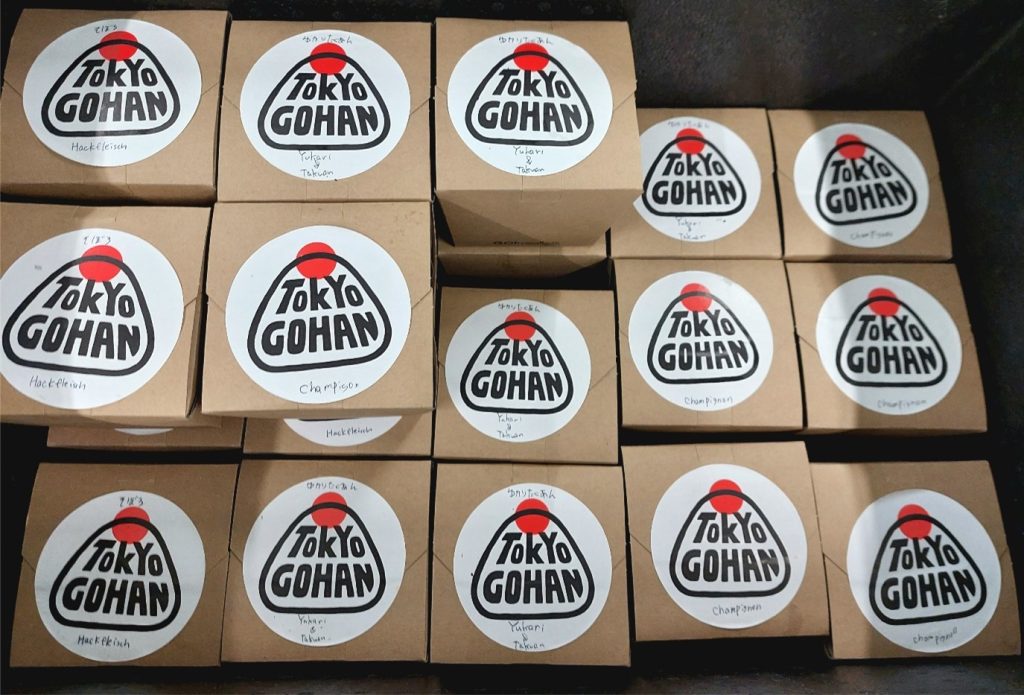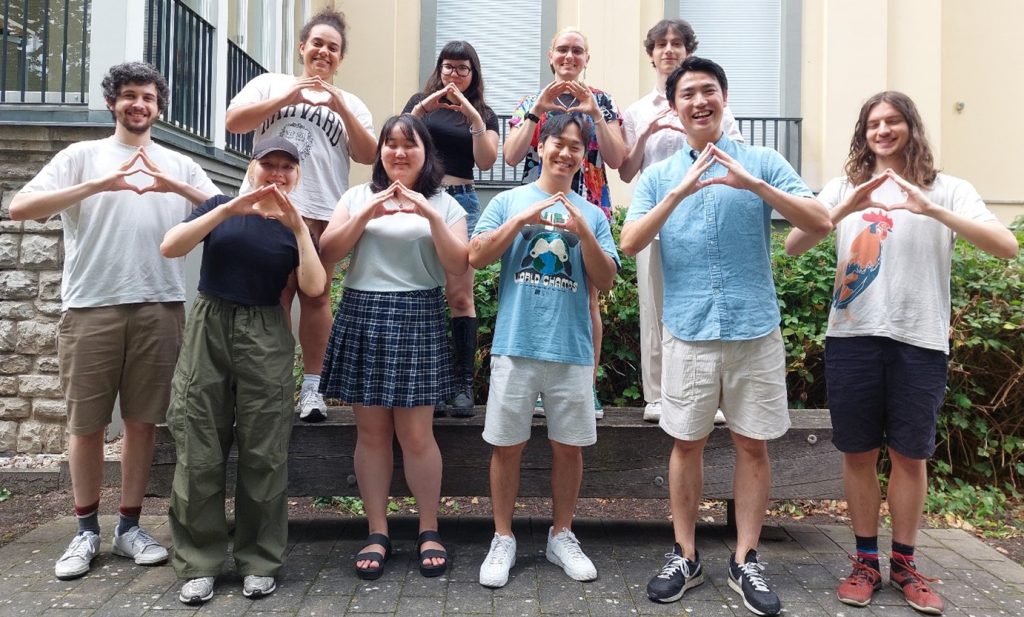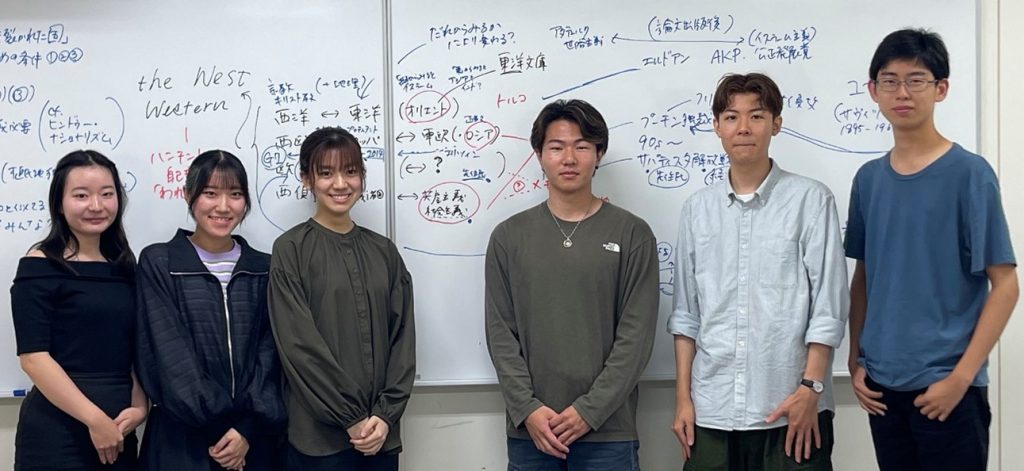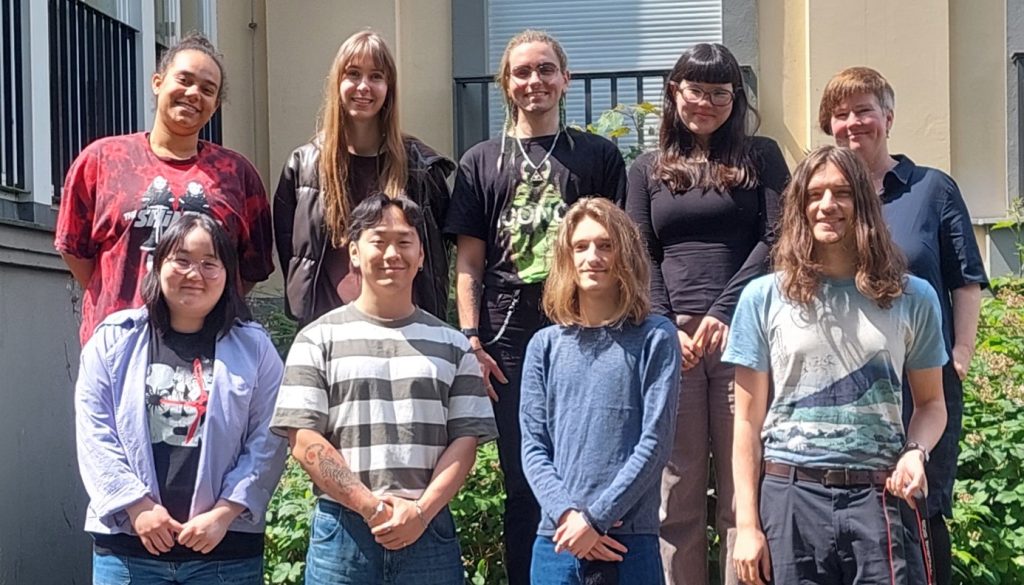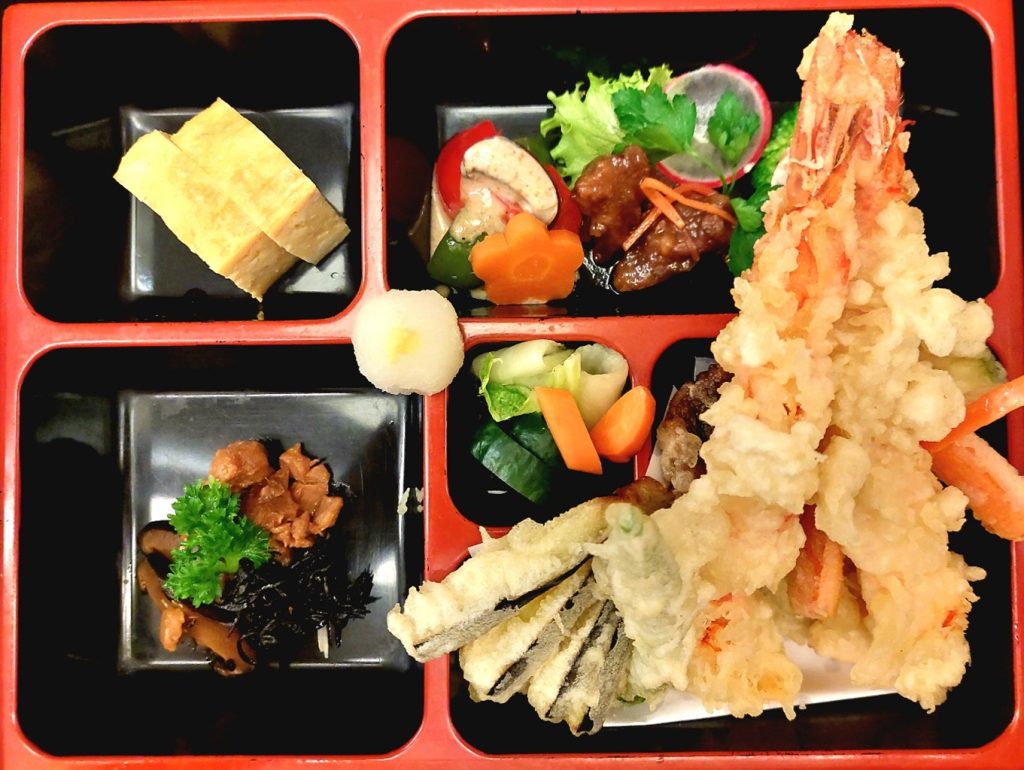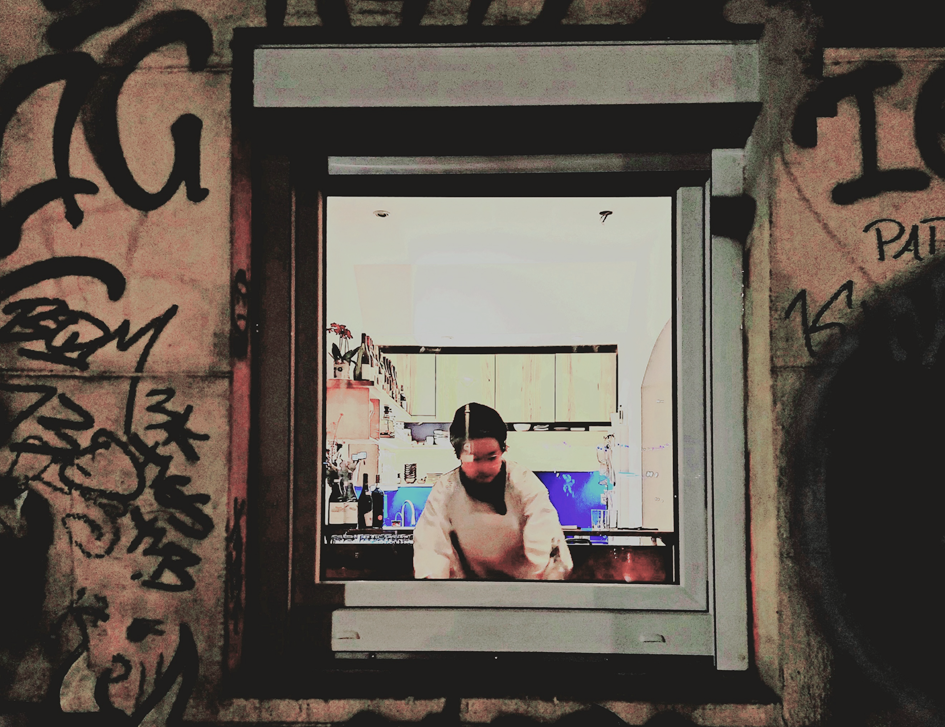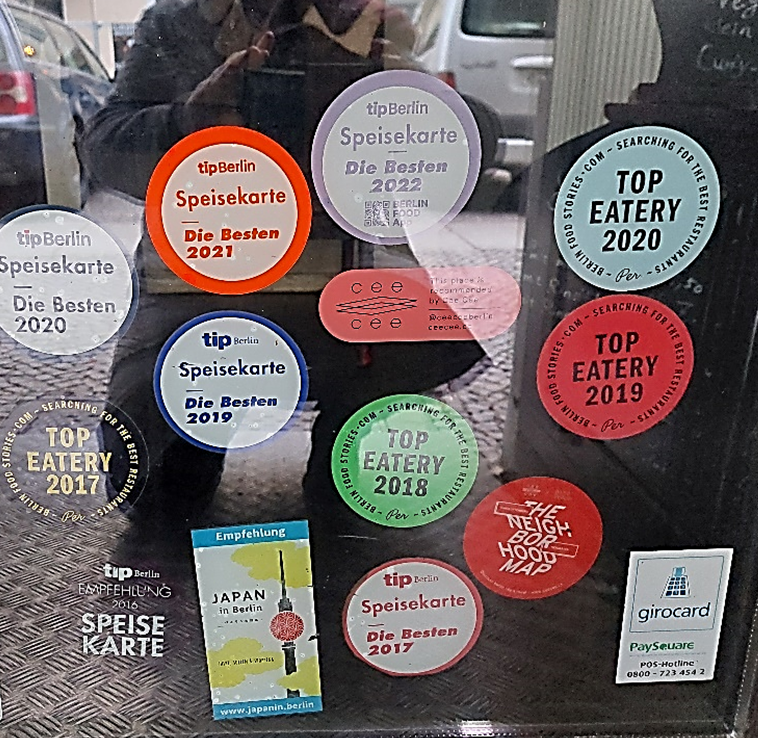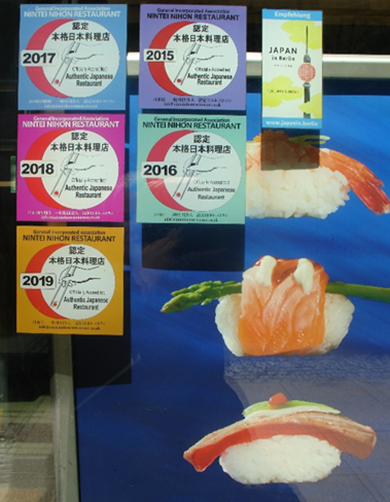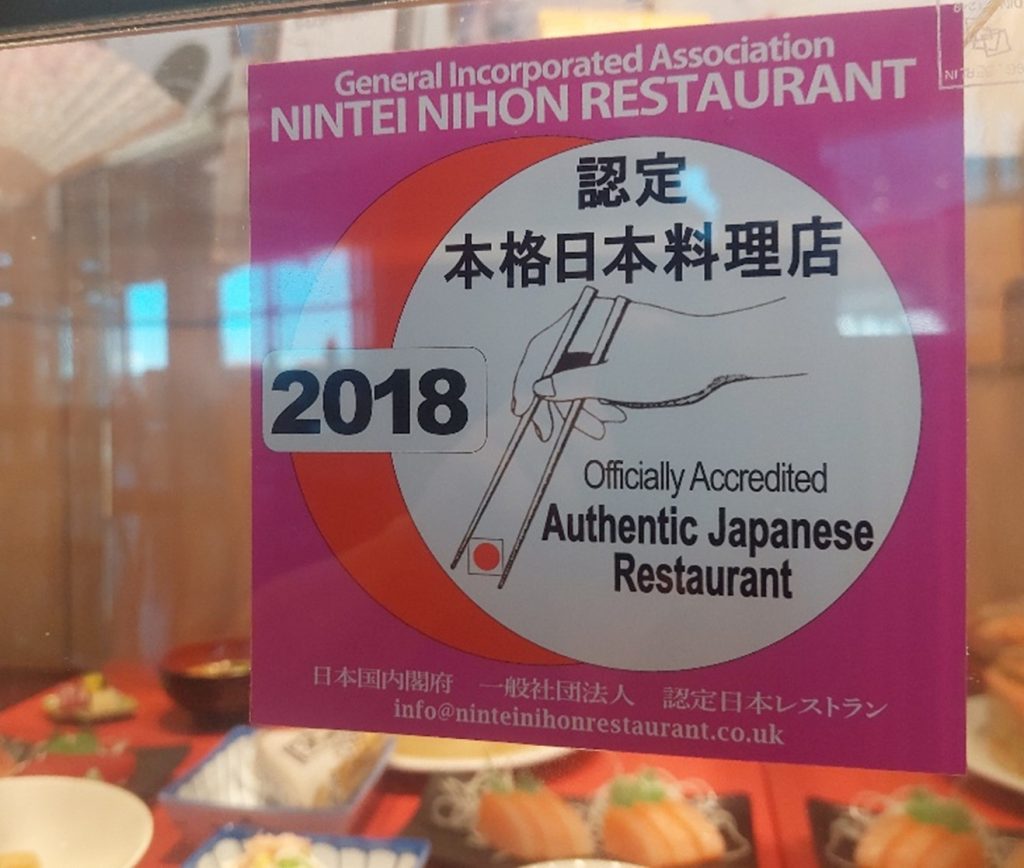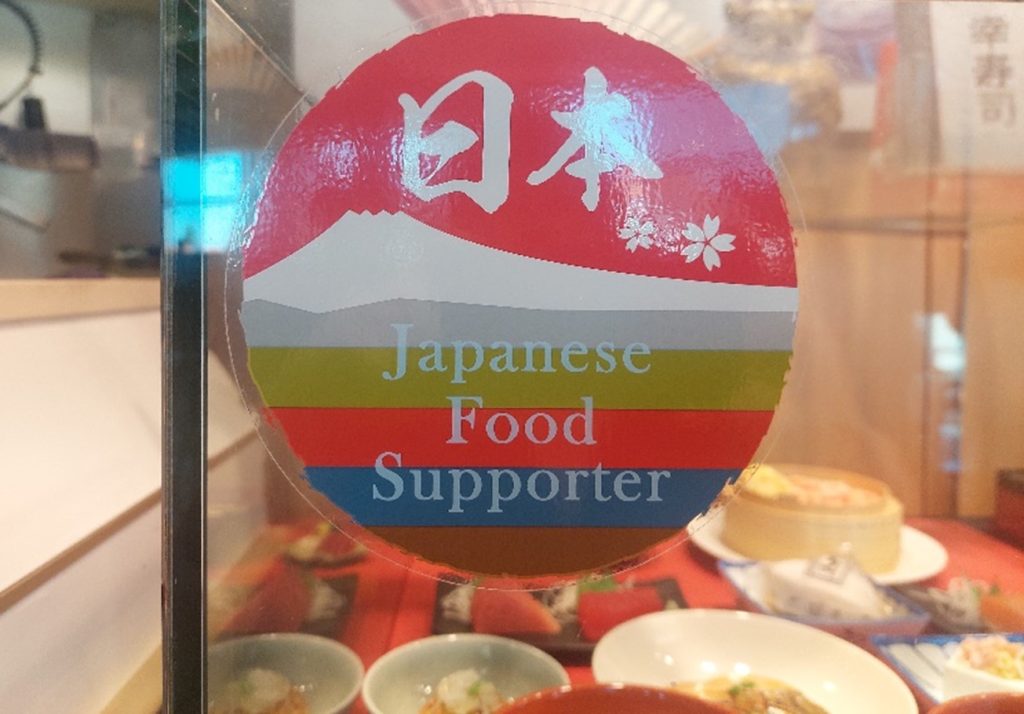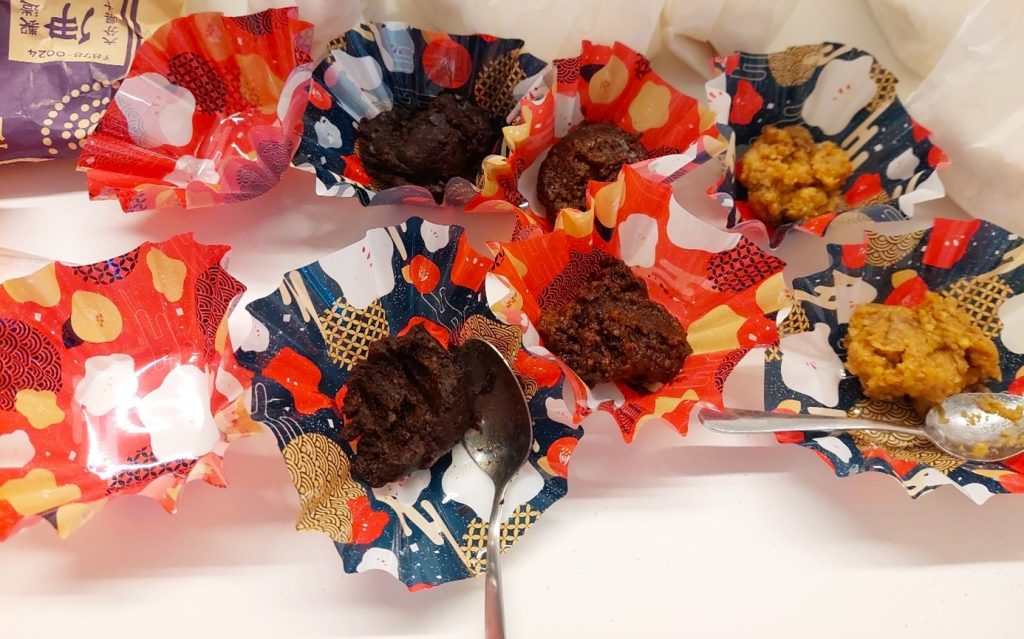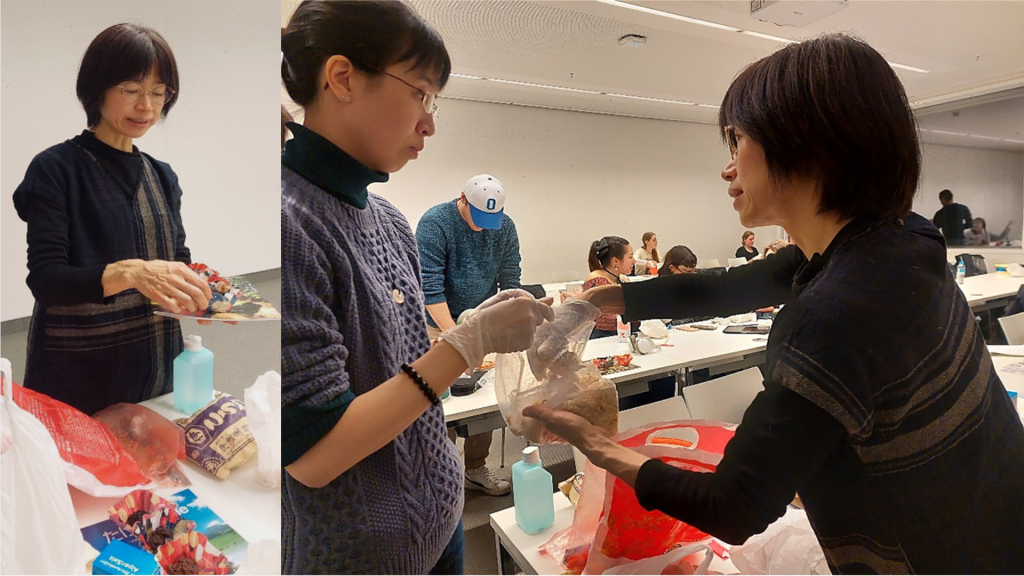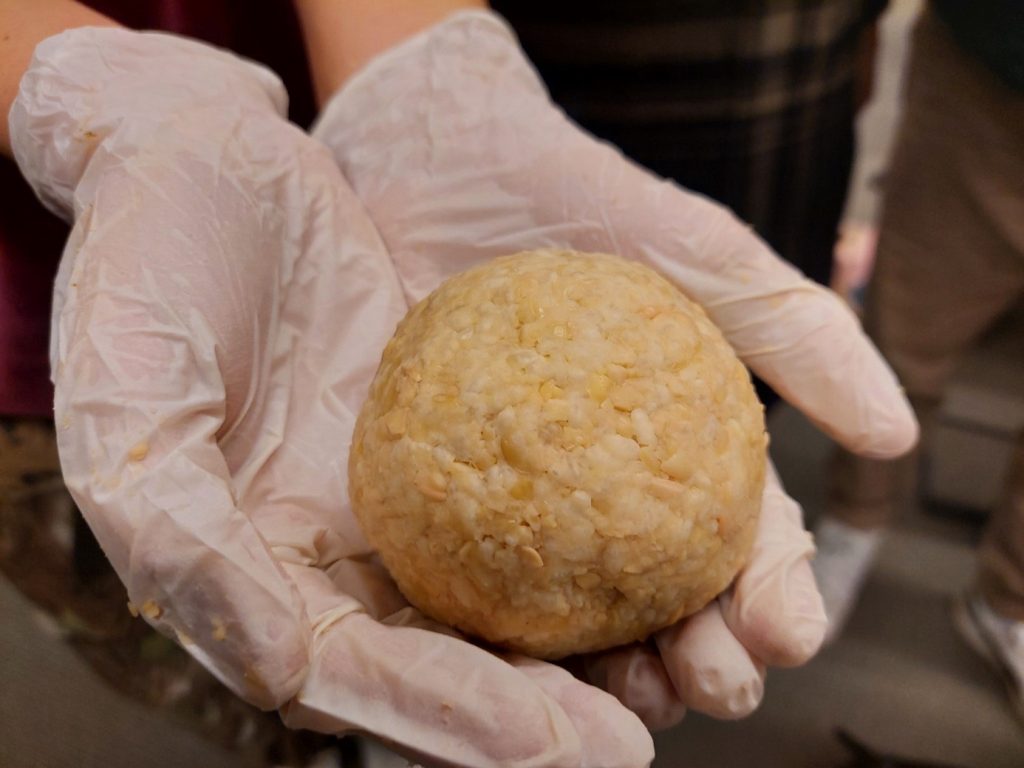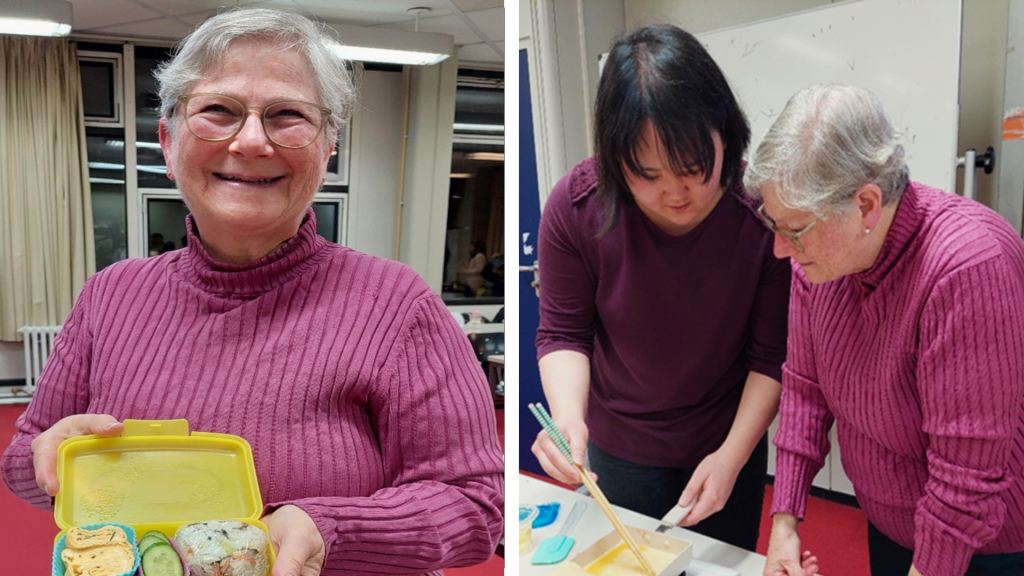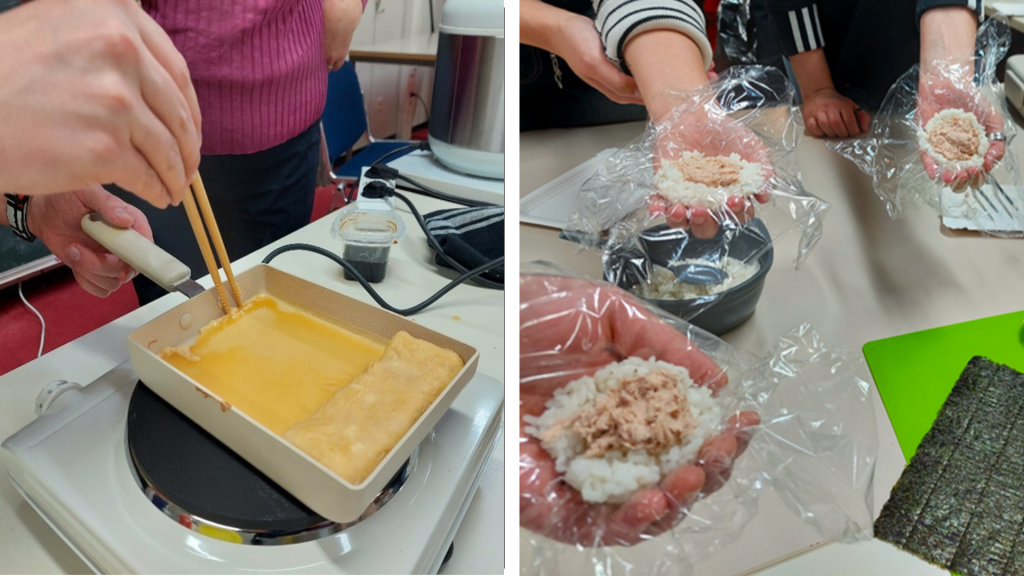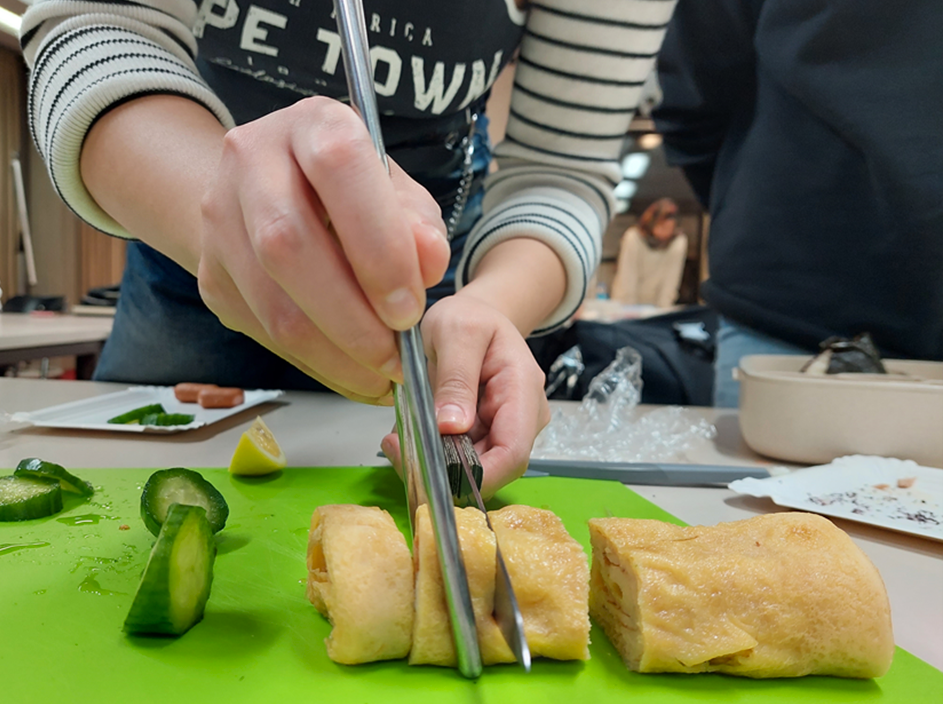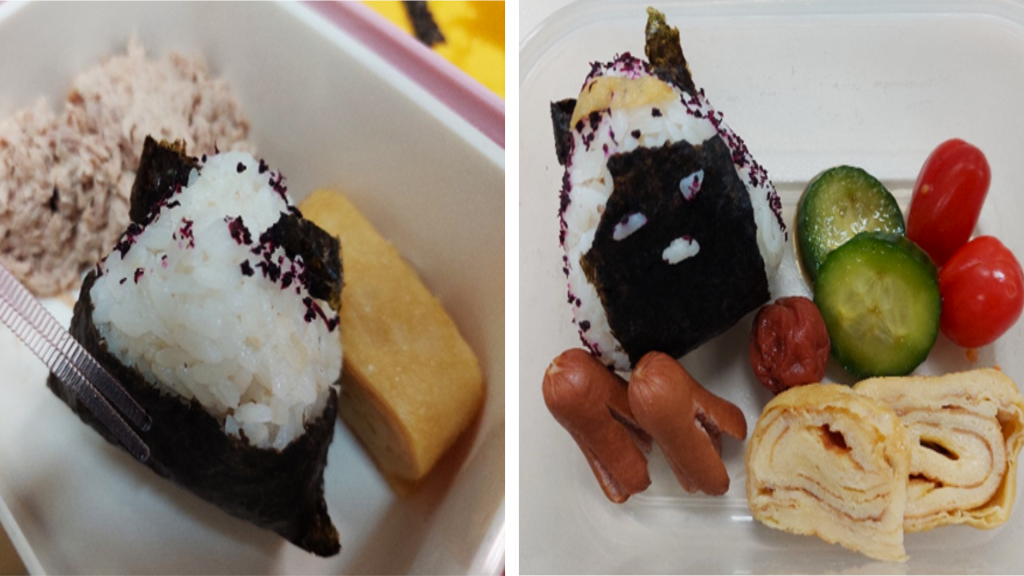von Aika Marcinkowski, Michelle Naumann, Phillip Perschke, Richard Han, Sarah Fäth
In einer Gruppe von 5 Personen haben wir uns gemeinsam auf den Weg gemacht, um japanische Restaurants in Berlin zu entdecken und zu erforschen. Dabei haben wir uns vor allem auf die “Japanizität” der Restaurants konzentriert und darauf geachtet, wie die einzelnen Restaurants ausgestattet sind. Außerdem haben wir in einem der Restaurants gegessen und uns mit dem Chef des Restaurants unterhalten, um einen persönlichen Einblick zu bekommen. Am Dienstag, den 11. Juni 2024 trafen wir uns um 18:30 Uhr am U-Bahnhof Wilmersdorfer Straße und fuhren direkt von dort aus los. “Gohan”, ein japanischer Imbiss, war unser erster Stopp. Leider hatten wir uns vorher nicht über die Öffnungszeiten informiert, so dass wir zu spät ankamen und der Imbiss bereits geschlossen war. Danach ging es direkt weiter zu unserem nächsten Ziel: Mido Sushi! Mido Sushi ist ein eher schickes Fusion-Restaurant, das sich auf Sushi spezialisiert hat. Neben japanischem Essen gibt es aber auch vietnamesische Hauptgerichte. Wir sind nicht hineingegangen, konnten aber von außen durch die großen Fenster gut in das Innere sehen. Die Inneneinrichtung bestand aus dunklem Holz, dem Bild einer Geisha, einem hängenden Sakura-Baum und war allgemein recht minimalistisch gehalten.
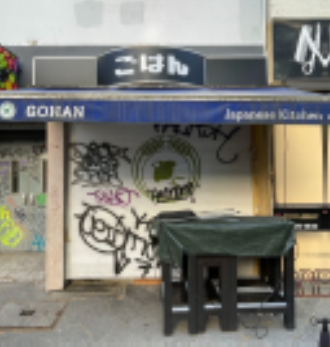
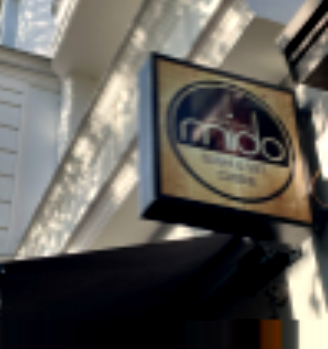
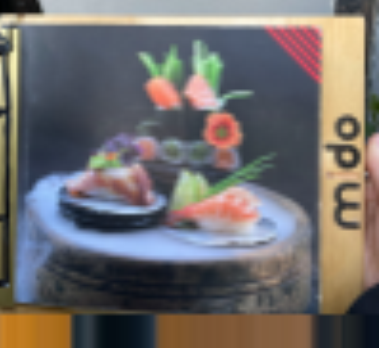
Copyright © Aika Marcinkowski, Michelle Naumann, Phillip Perschke, Richard Han, Sarah Fäth 2024
Gegen 19:15 Uhr besuchten wir unseren dritten Stop: Kame Bakery. Leider kamen wir auch hier nach den Öffnungszeiten an. Es hatte zwar geschlossen, jedoch konnten wir trotzdem einige Informationen sammeln. An der Eingangstür befinden sich nämlich einige Sticker, die zum Beispiel auf Takeout, einen behindertengerechten Laden, vegane Optionen sowie vielem mehr hindeuten. Einige von uns waren selbst schon mal vor unserer Schnitzeljagd in der Kame Bakery, weshalb wir wissen, dass die Besitzerin eine Japanerin ist und es eine schöne Tatami Ecke, Wandverzierungen und eine Möglichkeit das Go-Spiel zu spielen gibt. Es werden nicht nur süßes Gebäck und Getränke angeboten, sondern auch herzhafte Gerichte wie Miso-Suppen und Onigirazu angeboten.
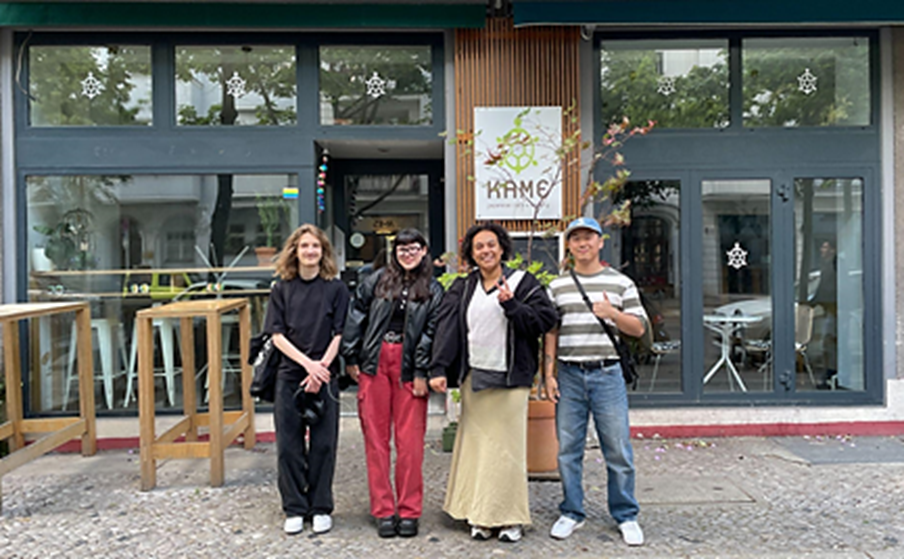
Schließlich kamen wir am Heno Heno an. Es war 19:25 Uhr und wir beschlossen, dort zu essen. Bevor wir bestellten, dokumentierten wir das Aussehen des Etablissements. Es gab einen Außen- und Innenbereich. Was uns sofort auffiel, war eine Vogelscheuche ähnelnde Puppe draußen auf der linken Seite, mit dem aufgemalten Gesicht, das aus japanischen Hiragana besteht, welche den Namen von dem Restaurant widerspiegelten, Heno Heno Mohe (へのへのもへ). Als wir den Laden betraten, fielen uns die verschiedenen japanischen Einrichtungsgegenstände auf, welche dem Laden nochmal mehr Authentizität verliehen. Fischlampen, Daruma und weiße Regenpuppen an der Decke, die für gutes Wetter sorgen sollen, dekorierten den Innenbereich. Insgesamt war die Einrichtung eher schlicht und minimalistisch gehalten. Es herrschte dennoch eine angenehme Atmosphäre.
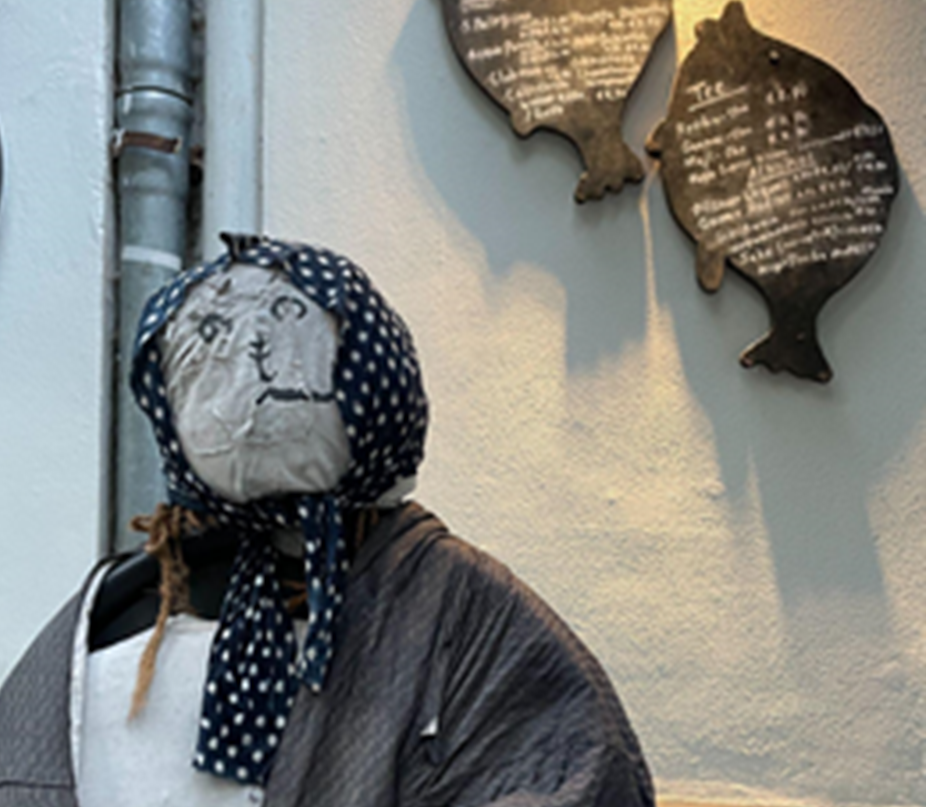
Während wir auf unsere Bestellung warteten, schauten wir uns weiter im Restaurant um. Auf jedem Tisch stand Kikkoman Sojasauce, Salz und Chilipulver. An diesem Tag arbeitete nur japanisches Personal im Laden. Als unser Essen nach ca. 10 Minuten kam, wusste der Kellner sofort, zu wem welche Bestellung gehörte, was uns positiv überraschte. Wir bestellten hauptsächlich donburi, da wir uns in unserem Forschungsprojekt damit beschäftigen. Einige von uns bestellten gyūdon (Rindfleisch auf Reis) und andere vegetarische Varianten mit z.B. Tofu als Topping. Eine Person bestellte zusätzlich Lachs-Onigiri (Reisbällchen mit Füllung) und eine andere probierte Inari Sushi (Sushi-Reis in Tofuhülle). Zum Essen tranken wir Tee wie mugicha oder genmaicha.
Während unseres Besuchs im Heno Heno hatten wir auch die Gelegenheit, mit dem Chef des Restaurants zu sprechen. Auf die Frage, was typisch japanisch an dem Restaurant sei, antwortete er uns, dass es in Berlin hauptsächlich japanische Restaurants gibt, die Sushi, Tempura oder japanisches Curry anbieten. Er selbst wollte aber unbedingt ein Restaurant eröffnen, das japanische Alltagsküche anbietet. Er erzählte uns, dass hauptsächlich Japaner in seinem Restaurant arbeiten. Auf die Frage, welche Gerichte er besonders empfehlen könne und welche sich am besten verkauften, empfahl er uns alle Gerichte und sagte, dass sie im Laufe der Jahre verschiedene Gerichte ausprobiert hätten und die Gerichte auf der Karte die beliebtesten und besten seien. In letzter Zeit seien vor allem die vegetarischen Gerichte sehr beliebt. Zuletzt wollten wir wissen, wer seine Kunden sind. Er sagte, dass die japanische Kundschaft eher einen kleinen Teil der gesamten Kundschaft ausmacht, und dass viele Japaner in Berlin vielleicht nicht genug Geld haben um regelmäßig in dem Restaurant essen zu gehen. Wir bedankten uns für das Gespräch und beendeten unsere Schnitzeljagd.
Aika, Michelle, Phillip und Sarah sind Studierende im BA-Studiengang „Japanstudien“ an der Freien Universität Berlin. Richard studiert im MA „Global East Asia“ (MAGEA) an der Freien Universität Berlin.

